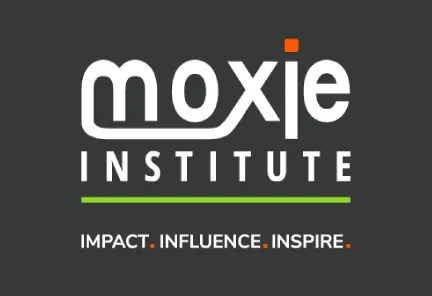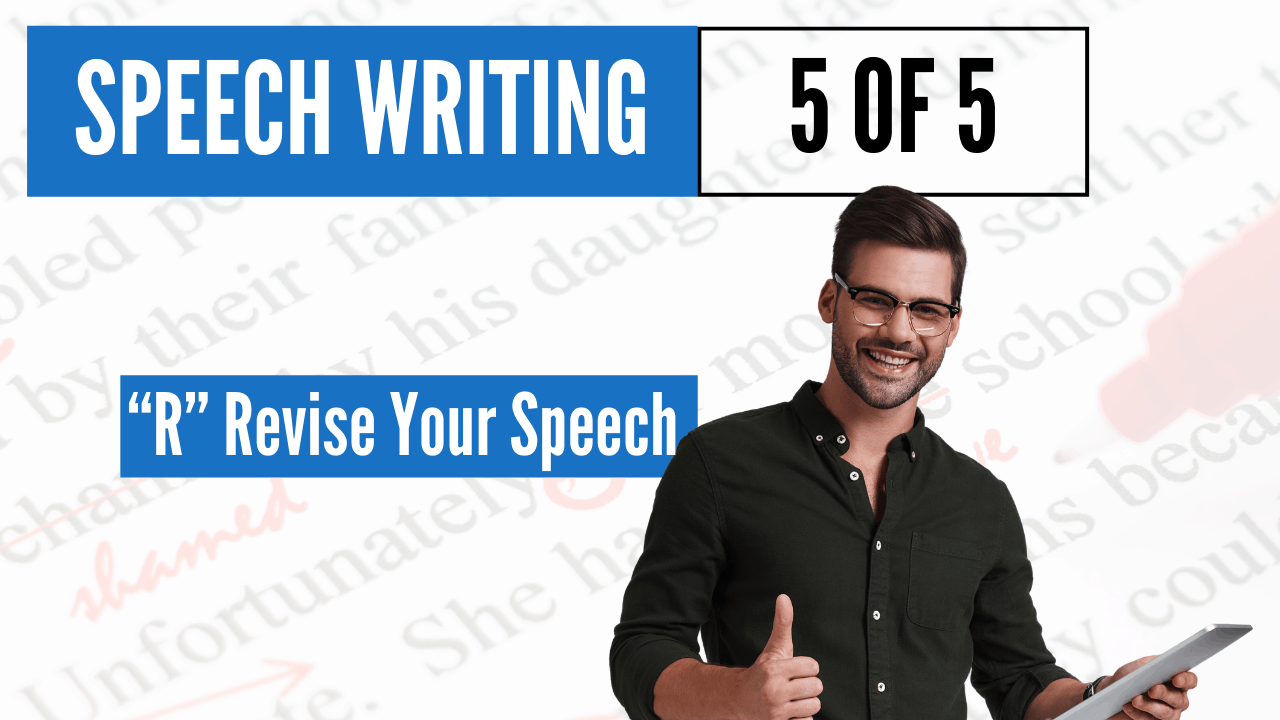Welcome to the final installment of our five-part blog series on the POWER method for speech writing!
In this blog we’ll be covering how proofreading and editing your speech can be that final layer of polish that takes your presentation from boring to bravo.
Revision is every successful writer’s secret weapon.
Why?
Because the first version of even the most talented writers will be bad. No one writes something once and it comes out perfect. Even if you research, plan, and organize your content, your mind won’t have the full picture just yet.
The first version is like a sculptor taking those first confident blows to the block of stone. Bringing the idea to life, giving it shape and substance.
We assume the big effort of getting the overall shape is enough. But you need to put in equal effort with smaller tools to sharpen, smooth, and improve all the little details that turn a rough shape into a beautiful work of art.
Revision is your tool to make your writing clearer, sharper and more powerful.
Table of Contents
ToggleFIRST, PROOFREADING GETS UGLY
The most frustrating part of writing a speech (or anything for that matter), is taking out the sentences that you love because they don’t add any value for the audience.
Sometimes a painstakingly crafted story, sentence, or phrase can be beautifully written, but not well received or directly tie to the purpose of your speech.
What that means is that just because it’s important to you, doesn’t mean that it will resonate with your audience. And if you’ll recall from our previous blogs, you’re not writing for you, you’re writing for the audience.
When you revise your speech you’re seeing it with fresh eyes and how the whole narrative plays out.
This is where you’ll likely see that some ideas you had and wrote in at the beginning don’t actually work.
We often refer to William Faulkner popular piece of writing advice, “Murder your darlings”.
The idea is to proceed objectively and without sentiment. Once a project has begun to take on a life of its own, you must proceed with honesty and humility.
REFINE, REFINE, REFINE
There are words and phrases that you should always try to avoid when writing a speech. Here are some of the top offenders when it comes to mucking up a speech:
- “I” or “me” – this presentation is not about you, it’s about the audience. Remember we want to write audience-centric talks. Replace “I” and “me” with “you”’, ”we”, or “us”.
- “A little bit” – this phrase will water down your content, it minimizes your point.
- “Just” – waters down your content the same way that “a little bit” does.
- “So” – this word is a filler. It’s a transition word between thoughts. It’s a lazy way to introduce a new idea or topic.
- “Talk about” – used repetitively and sometimes with bullet points. If you need to engage listeners, saying “talk about” is monotonous, you’ll lose the audience’s attention.
- “I’ve been asked to speak about” – this phrase is sometimes seen as an attempt by the speaker to sound important. You want your audience to relate to you, not feel as if you’re trying to puff yourself up.
- “Sorry” – apologizing for your presentation is a sign that you’ve not clearly communicated or shown the audience what you’re trying to convey.
With so many words to avoid using, it can take a few edits to get through the full list.
One way to get the job done faster is to use the Find Command in your document to search for the words or phrases one at a time throughout the entire speech. This option lets you find the words to edit without having to read through the entire speech scanning for all of the words and phrases.
SPEECH EDITING AND PROOFREADING TIPS FROM THE PROS
Through years of being a TEDx speaker coach to 100’s of clients, Fia Fasbinder has some of the most helpful insight and tips for how to add polish to your presentation like a professional speech writer.
Fia always insists that the editing process should focus on tightening up your speech around that one big idea.
Make sure that the central idea of the speech gets clearly stated in the introduction, mentioned in each of the points of the body, and sometimes even flatly stated.
For her second pro tip, Fia recommends treading lightly with humor. If your audience is drunk, you can keep a few jokes, but if your audience is sober (they probably are), watch out.
Jokes are difficult even for comedians. Try to aim for universal and casual humor, not specific and edgy. It’s the difference between talking about something relatable like losing your keys versus referencing the actions of a celebrity your audience might not even know.
Sedaris says,
“Never tell a joke, always tell a failure.”
Simplification is another key component to writing a good speech.
Don’t get stuck in the weeds. The number one mistake we see is when folks include too much factual detail.
The audience doesn’t need to know the time and date you went to the emergency room, they want to know the smell of the room and the feeling it gave you.
Too much factual detail can be distracting from the main point. When you’re trying to evoke an emotion or an image, less is more.
QUESTIONS TO ASK YOURSELF AS YOU REFLECT AND REVISE
After setting your piece of writing down and sleeping on it for a night, pick up where you left off, and reflect on the following questions from the perspective of your audience:
- Is my purpose clear and compelling?
- Have I considered the questions and concerns of my audience?
- Have I written in the form and style appropriate for the setting?
- Have I included stories, examples, evidence, and supporting details?
From the perspective of Moxie’s staff speechwriters, consider the following:
- Does my introduction grab the audience’s attention?
- Does my conclusion successfully bring my presentation to a close?
- Do my paragraphs flow from one to the other?
- Have I organized my ideas in a way that takes your audience on a journey?
- Have I included audience engagement techniques that gains and maintains attention?
After revising, try one of these proofreading techniques to polish your writing:
- Read your writing out loud to catch run-on sentences, over-used words, errors, and typos.
- Share your writing with a colleague, friend, or family member.
For more information on how to engage your audience, best practices to rehearse your speech, how to land a TED talk, editing like a pro, or for information on Moxie Institute’s professional done-for-you speech writing services or award-winning speaker coaching, schedule a breakthrough call today using the link to the right. We are excited to help!
TAKE THE FIRST STEP TO MASTER POWERFUL NEW SKILLS
Schedule an easy 30-minute call using our using our calendar. We’re here to help!









